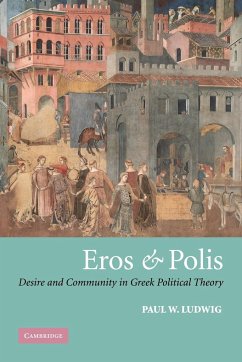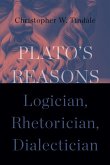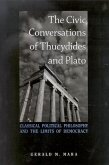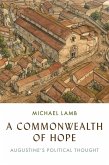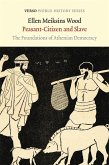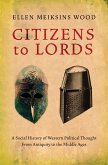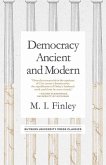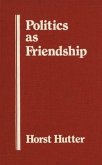Paul Ludwig evaluates sexuality, love and civic friendship as bonds of political association.
Eros and Polis examines how and why Greek theorists treated political passions as erotic. Because of the tiny size of ancient Greek cities, contemporary theory and ideology could conceive of entire communities based on desire. A recurrent aspiration was to transform the polity into one great household that would bind the citizens together through ties of mutual affection. In this study, Paul Ludwig evaluates sexuality, love and civic friendship as sources of political attachment and as bonds of political association. Studying the ancient view of eros recovers a way of looking at political phenomena that provides a bridge, missing in modern thought, between the private and public spheres, between erotic love and civic commitment. Ludwig's study thus has important implications for the theoretical foundations of community.
Review quote:
"Eros and Polis is wonderful and a much needed contribution to the examination of Classical Greek political thought."
Bryn Mawr Classics Review
"Ludwig makes a strong case that there is much to be found in Greek theory that can complete understanding of the role of Eros in modern politics. Recommended."
Choice
Table of contents:
Acknowledgements and a note on citations; Introduction; Part I. Political Eros: An Account from the Symposium: 1. Statesmanship and sexuality in Aristophanes' speech; 2. Law and nature in Aristophanes' speech; Part II. The Discourse of Political Eros: 3. Scientific poetic traditions of eros in Thucydides; 4. The problem of aggression; 5. The problem of sublimation; Part III. The Polis as a School for Eros: 6. Civic nudity; 7. Patriotism and imperialism as eros; List of works cited; Abbreviations; Other works cited; Index.
Hinweis: Dieser Artikel kann nur an eine deutsche Lieferadresse ausgeliefert werden.
Eros and Polis examines how and why Greek theorists treated political passions as erotic. Because of the tiny size of ancient Greek cities, contemporary theory and ideology could conceive of entire communities based on desire. A recurrent aspiration was to transform the polity into one great household that would bind the citizens together through ties of mutual affection. In this study, Paul Ludwig evaluates sexuality, love and civic friendship as sources of political attachment and as bonds of political association. Studying the ancient view of eros recovers a way of looking at political phenomena that provides a bridge, missing in modern thought, between the private and public spheres, between erotic love and civic commitment. Ludwig's study thus has important implications for the theoretical foundations of community.
Review quote:
"Eros and Polis is wonderful and a much needed contribution to the examination of Classical Greek political thought."
Bryn Mawr Classics Review
"Ludwig makes a strong case that there is much to be found in Greek theory that can complete understanding of the role of Eros in modern politics. Recommended."
Choice
Table of contents:
Acknowledgements and a note on citations; Introduction; Part I. Political Eros: An Account from the Symposium: 1. Statesmanship and sexuality in Aristophanes' speech; 2. Law and nature in Aristophanes' speech; Part II. The Discourse of Political Eros: 3. Scientific poetic traditions of eros in Thucydides; 4. The problem of aggression; 5. The problem of sublimation; Part III. The Polis as a School for Eros: 6. Civic nudity; 7. Patriotism and imperialism as eros; List of works cited; Abbreviations; Other works cited; Index.
Hinweis: Dieser Artikel kann nur an eine deutsche Lieferadresse ausgeliefert werden.

